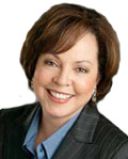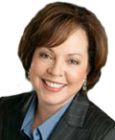Midlife
Are Midlife Crises Necessary and Useful
Midlife crises are not just for 50 year olds!
Posted January 2, 2012
Recently, I read the book "The Midlife Crisis Handbook" in preparation for interviewing its author, Dr. Dike Drummond on my radio show (listen to the show at: http://www.voiceamerica.com/show/1888/the-vital-life-awakening-your-ful…). I was intrigued by his approach to midlife crises. In his book, he talks about a midlife crisis as being a pull from spirit to realign with your authentic self.
There are of course many examples of midlife crises done poorly, i.e. men leaving their wives for a younger woman or buying a sports car or older people trying to relive their lost youth. The idea of a "functional midlife crisis" discussed in Dr. Drummond's book is very interesting. In this scenario, the midlife crisis is what I called a "call to action" to change something in your life. It could be precipitated by an illness, as it was in my case at the age of 50 when I sold my medical practice and was diagnosed with chronic fatigue syndrome or by a divorce, dissatisfaction with your job or other situations that force you out of the flow of the busy, hectic life most of us live. Once you're forced to stop and take a look at what is happening, you have the choice to buy the sports car or to make more substantive changes in your life.
In my case, I changed my career over a period of years. Realizing that if my medical condition didn't approve (and it did luckily), I would not be able to continue to work 12 hour days (yes, obviously this schedule contributed to my medical problems), I applied to and was accepted in the Integrative Medicine fellowship training program and over the period of several years became a consultant in eating disorders, obesity and addictions. Had I not been forced to take stock of my situation by my illness, it is doubtful I would have moved out of my frozen position of workaholism to make this change.
As we enter 2012, a year that the philosophers and mystics say is one that will encourage us to use our intution and creativity more than our intellect, it's a good time to have a midlife crisis. Dr. Drummond's book encourages this as a shortcut to reaching our dreams. Rather than make yet another NY resolution that is forgotten by the Ides of March, maybe it's time to take stock of your life and see what you're really being called to change. From a spiritual perspective, it's never about appearances or money or other external things. When we are called to take action by the deeper urges of our soul or spirit - it is to follow this internal desire that's present in all of us to re-align with our authentic selves, the person we were always meant to be.
Sometimes it is addiction (yes, even workaholism) or stress or life experiences that take us completely off our path of true authentic expression. Or it may be inertia, fear or just the overwhelming fullness of modern life that makes it hard for us to live our dreams or even get in touch with said dreams. Steve Jobs is a wonderful example of someone what had to change direction to find his true path.
In this New Year, we can use the concept of the Functional Midlife Crisis to see what dreams we've left behind, forgotten or been afraid to pursue. Dr. Drummond says that "whatever your 'problem' is - it's a marker for your dream." Identifying the problem is just the first step. Next, you must look deeper to see the dream that is showing up as the problem. If you're sick of your job, you may need to plan an exit strategy or you may want to just try and amplify the parts of your job that you do love. Use your intuition to help you search for YOUR best solution. Be creative and avoid all or nothing thinking. Don't do anything drastic in response to the frustration that you've allowed to build up. But above all else, don't ignore this call to action. Your problems are calling you to a deeper, more fulfilling life.


